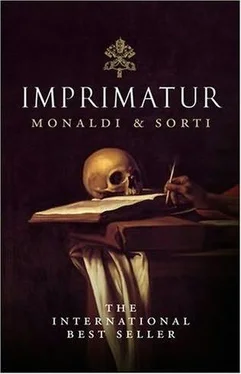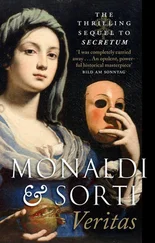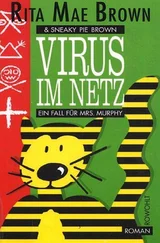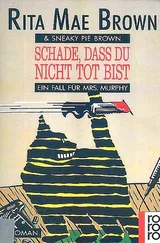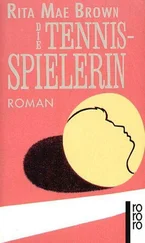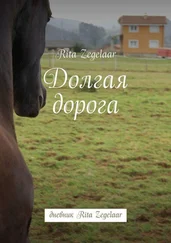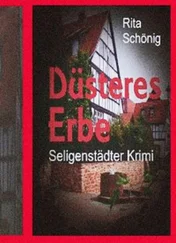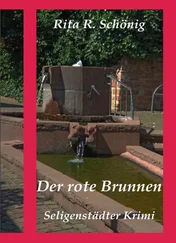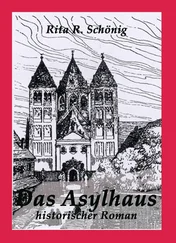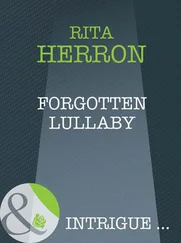Rita Monaldi - Imprimatur
Здесь есть возможность читать онлайн «Rita Monaldi - Imprimatur» весь текст электронной книги совершенно бесплатно (целиком полную версию без сокращений). В некоторых случаях можно слушать аудио, скачать через торрент в формате fb2 и присутствует краткое содержание. Жанр: Исторический детектив, на английском языке. Описание произведения, (предисловие) а так же отзывы посетителей доступны на портале библиотеки ЛибКат.
- Название:Imprimatur
- Автор:
- Жанр:
- Год:неизвестен
- ISBN:нет данных
- Рейтинг книги:5 / 5. Голосов: 1
-
Избранное:Добавить в избранное
- Отзывы:
-
Ваша оценка:
- 100
- 1
- 2
- 3
- 4
- 5
Imprimatur: краткое содержание, описание и аннотация
Предлагаем к чтению аннотацию, описание, краткое содержание или предисловие (зависит от того, что написал сам автор книги «Imprimatur»). Если вы не нашли необходимую информацию о книге — напишите в комментариях, мы постараемся отыскать её.
Imprimatur — читать онлайн бесплатно полную книгу (весь текст) целиком
Ниже представлен текст книги, разбитый по страницам. Система сохранения места последней прочитанной страницы, позволяет с удобством читать онлайн бесплатно книгу «Imprimatur», без необходимости каждый раз заново искать на чём Вы остановились. Поставьте закладку, и сможете в любой момент перейти на страницу, на которой закончили чтение.
Интервал:
Закладка:
I have already had cause to mention that, in the days before the beginning of the quarantine, strong reverberations had been heard, coming from the ground under the inn, and immediately afterwards Master Pellegrino had discovered a fissure in the wall of the staircase on the first floor. The phenomenon had, of course, given rise to no little concern; but that had, however, been overshadowed by the death of Fouquet, the imposition of the quarantine and many successive events. However, Stilone Priaso's astrological almanack had, as I had been able to read with my own eyes, predicted for those days "earthquakes and subterranean fires". If this had been a mere coincidence, it seemed designed to perturb even the calmest of spirits.
The memory of those subterranean rumblings still instilled a certain disquiet in my soul, made all the greater by the crack in the staircase which-I could not decide whether this was the work of my imagination-seemed every day to grow longer and deeper.
It was perhaps because of that state of anxiety that, on the night of the 24th and 25th September, I awoke in the small hours. I opened my eyes, finding my dark, damp chamber even narrower and more suffocating than usual. What had disturbed me? I had no need to relieve my bladder, nor had I been awoken by some loud noise. No: it was a sinister, diffuse creaking, coming from I knew not where. It was like the groan of pebbles grinding against each other, as though they were being slowly crushed by a gigantic millstone.
Thought and action were one: I flung open my door and rushed into the corridor, then down to the lower floors, yelling at the top of my voice. The inn was about to collapse.
Cristofano, with praiseworthy presence of mind, at once warned the night watchman, so that he should let us escape to the safety of the street. The evacuation of the Donzello, observed with a mixture of curiosity and unease by some neighbours who had at once rushed to their windows, was neither easy nor devoid of perils. The creaking came from the stairs, where the fissure had, in the space of a few hours, grown into a chasm. As usual, it required the courage of a few (Atto Melani, Cristofano and myself) to bear the helpless Dulcibeni to safety. The convalescent Bedfordi managed on his own. Thus, too, my master, although confused, found the usual presence of mind to utter imprecations against his misfortune. Once we were all outside, it seemed almost as though the peril had ceased. It would not, however, have been wise to return, and that was emphasised by the noise of a great fall of rubble within. Cristofano consulted closely with the watchman.
This led to the decision that we should turn to the nearby monastery of Celestine fathers who would surely take pity on our sad condition and be willing to offer us succour and shelter.
And so they were; awoken in the middle of the night, the fathers welcomed us without great enthusiasm (perhaps also because of the suspicion of pestilence during the preceding days) but with pious generosity, assigning us to little cells, in which each of us could find the most dignified and comfortable refuge.
The great news of the following day, Saturday 25th September, arrived as soon as we awoke. The city was still immersed in the festive climate of the Viennese victory celebrations, and hardly had I poked my nose out from my little cell than I saw how this carelessly relaxed attitude had affected even the Celestine fathers. None of them was keeping any special watch over us, and the only supervisory visit that I received was that of Cristofano, who had slept in the same cell as Dulcibeni, in order to be able to assist him with any nocturnal difficulties. He confirmed with a trace of surprise that we seemed not to be subject to restrictions of any kind and that whoever wished to do so could walk out from any of the monastery's many doors. In the coming days, he thought that some would inevitably make their way out. He did not, however, know that the first such escapade would take place within only a few hours.
It was an indiscreet conversation between two Celestine fathers outside my door that brought to my attention the event which was to take place that very evening: in the Basilica of Saint John Lateran, the victory at Vienna was to be celebrated with a great Te Deum\ and this solemn rite of thanksgiving was to be conducted by His Beatitude Pope Innocent XI in person.
I spent almost the entire day in my cell, apart from a couple of visits to Dulcibeni and Cristofano, and one to Pellegrino. My poor master was now beset by sufferings of both body and mind: it had been explained to him that the inn was in danger and that in the early hours of the morning, the stairs had completely collapsed, together with the landings and walls giving onto the inner courtyard. I myself gave a start upon hearing that news: it meant that in all probability the secret closet through which one could gain access to the galleries beneath had been lost. I would have liked to share that news with Abbot Melani, but it was too late.
When the afternoon light was already eroded by the soft embrace of twilight, it was not difficult for me to slip out from my cell and from the monastery, through an unguarded side door. For a modest sum (which I took from the few savings I had salvaged during our flight from the Donzello), I gained the complicity of a young servant of those friars, so as to be certain of finding the same door open on my return.
I was not fleeing; I had only one aim, and once I had satisfied that I would again retire to the monastery of the Celestines. It took no little time to reach the basilica of Saint John, where a huge crowd of people was gathering. From the monastery, I went first to the Pantheon, then to the Piazza San Marco and thence to the Colosseum. Within a few minutes, after proceeding down the street that leads straight from the amphitheatre to the basilica, I found myself at last in the Piazza of Saint John Lateran, surrounded by an anxious, febrile multitude which was growing by the minute. I therefore approached the entrance of the basilica, where I saw that I had arrived only just in time: flanked by two wings of the jubilant crowd, His Holiness emerged at just that moment.
As I tiptoed to see him better, I received a blow on the ear from the elbow of an old man who was trying to barge past me.
"Hey, take care, boy," he said rudely to me, as though it was he who had been struck.
Despite the many necks and heads towering above me, by slipping with difficulty through the crush, I managed at last to catch sight of His Beatitude, just before he mounted his carriage, retreating from the plaudits and attention of the multitude. I saw him, just when he saluted the faithful and, with a smiling, amiable gesture, blessed us once, twice, three times. Taking advantage of my youthful agility, I had managed to come within a few feet of the Holy Father; thus I could scrutinise his countenance from nearby and discern the colour in his cheeks, the light in his eyes and even his complexion.
I am not a physician, nor am I a seer. It was perhaps only my hunger to know the truth that stimulated my faculties of observation to an almost supernatural degree, beyond the confines of common experience, thus enabling me to see that there was not a trace of sickness in him. He had the face of one who has suffered greatly, that is true; but his suffering was of the soul, long wracked by anxiety for the fate of Vienna. Just next to me, I heard two aged prelates whisper that, upon receiving the joyous news of the victory, Innocent XI had been seen weeping like a child, kneeling on the ground and wetting the tiles of his chamber with his compassionate tears.
But sick, no, that he was not; this was clear from his luminous expression, his rosy complexion, and lastly from the brief but vigorous movement with which he mounted the step to his carriage before disappearing into it. Not far off, I suddenly descried the placid face of Tiracorda. He was surrounded by a group of young men (perhaps his students, I thought). Before the strong hand of a pontifical guard pushed me back, I had time to overhear Tiracorda: "But no, you are too kind. It is through no merit of mine… It was the hand of the Lord: after the happy victory, I no longer needed to do anything."
Читать дальшеИнтервал:
Закладка:
Похожие книги на «Imprimatur»
Представляем Вашему вниманию похожие книги на «Imprimatur» списком для выбора. Мы отобрали схожую по названию и смыслу литературу в надежде предоставить читателям больше вариантов отыскать новые, интересные, ещё непрочитанные произведения.
Обсуждение, отзывы о книге «Imprimatur» и просто собственные мнения читателей. Оставьте ваши комментарии, напишите, что Вы думаете о произведении, его смысле или главных героях. Укажите что конкретно понравилось, а что нет, и почему Вы так считаете.
